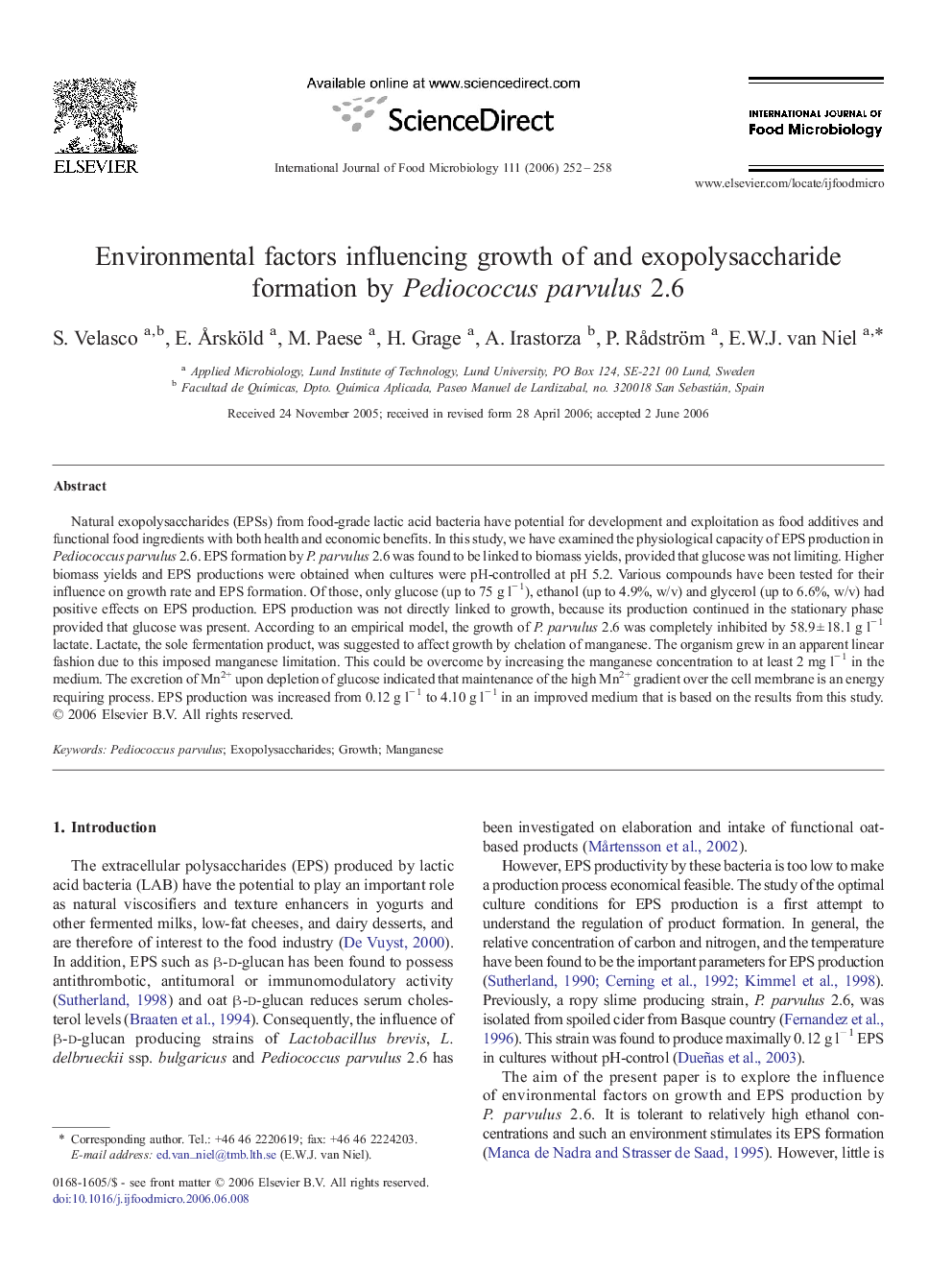| Article ID | Journal | Published Year | Pages | File Type |
|---|---|---|---|---|
| 4370137 | International Journal of Food Microbiology | 2006 | 7 Pages |
Natural exopolysaccharides (EPSs) from food-grade lactic acid bacteria have potential for development and exploitation as food additives and functional food ingredients with both health and economic benefits. In this study, we have examined the physiological capacity of EPS production in Pediococcus parvulus 2.6. EPS formation by P. parvulus 2.6 was found to be linked to biomass yields, provided that glucose was not limiting. Higher biomass yields and EPS productions were obtained when cultures were pH-controlled at pH 5.2. Various compounds have been tested for their influence on growth rate and EPS formation. Of those, only glucose (up to 75 g l− 1), ethanol (up to 4.9%, w/v) and glycerol (up to 6.6%, w/v) had positive effects on EPS production. EPS production was not directly linked to growth, because its production continued in the stationary phase provided that glucose was present. According to an empirical model, the growth of P. parvulus 2.6 was completely inhibited by 58.9 ± 18.1 g l− 1 lactate. Lactate, the sole fermentation product, was suggested to affect growth by chelation of manganese. The organism grew in an apparent linear fashion due to this imposed manganese limitation. This could be overcome by increasing the manganese concentration to at least 2 mg l− 1 in the medium. The excretion of Mn2+ upon depletion of glucose indicated that maintenance of the high Mn2+ gradient over the cell membrane is an energy requiring process. EPS production was increased from 0.12 g l− 1 to 4.10 g l− 1 in an improved medium that is based on the results from this study.
